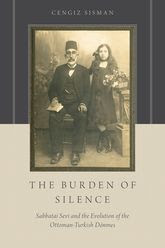OXFORD SCHOLARSHIP - 2015
This book presents a social and religious history of the Sabbatean movement from its birth in the Ottoman Empire in the seventeenth century to the Republic of Turkey in the first half of the twentieth century. Initiated by a Jewish “messiah,” Sabbatai Sevi (1626–1676), the movement became an influential historical event, in terms of its rapid dissemination and widespread impact, combining Jewish, Islamic, and Christian religious and social elements in the early modern Eurasian world. When Ottoman authorities forced Sevi to convert to Islam in 1666, his followers formed a messianic crypto Judeo-Islamic sect, Dönme, lived mainly in Salonica, Izmir, and Istanbul, and which has survived to the present. During this long process of self-preservation, the book argues, the Dönmes internalized the Kabbalistic philosophy of a “burden of silence” to conceal their practices from their often hostile surroundings. They came to believe that they must keep their identities secret on pain of “spiritual” and material punishments, which shaped their responses to internal and external challenges over centuries. This “burden of silence” became the core aspect for the Dönme Kabbala. In the nineteenth and twentieth centuries, well-educated and well-organized community members played important roles in modernizing and secularizing Ottoman Empire and Turkish Republic. By using Ottoman, Turkish, Jewish, and European written and oral sources, the book narrates and analyzes the Dönme history against broader topics such as messianism, conversion, crypto- and hybrid identities, modernism, and memory.
READ MORE.....

No comments:
Post a Comment